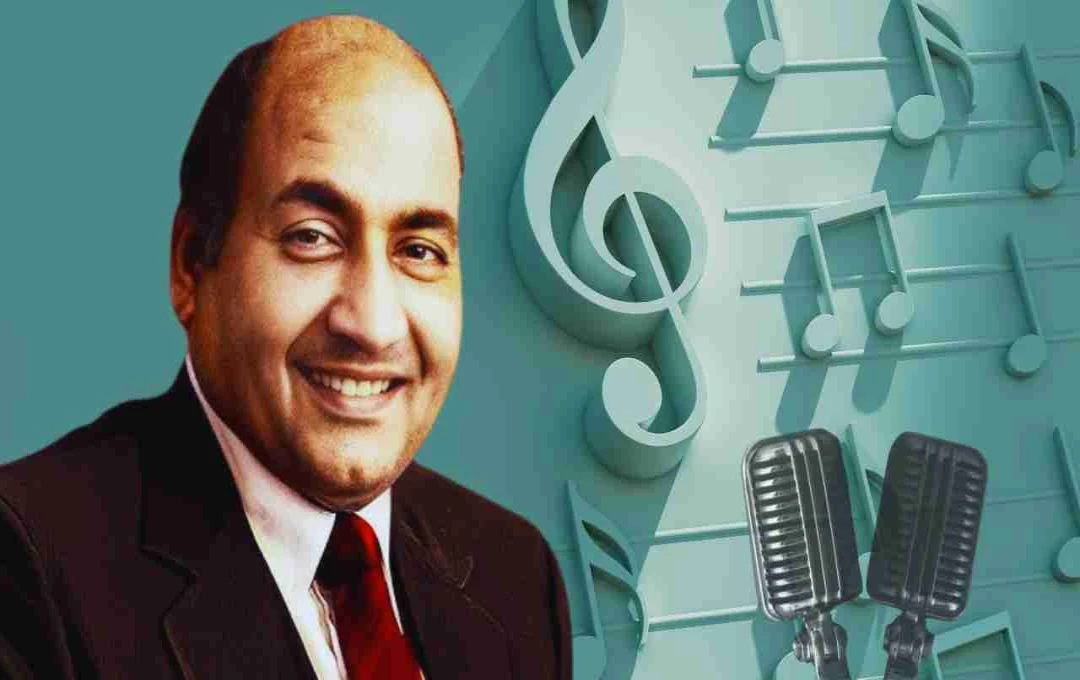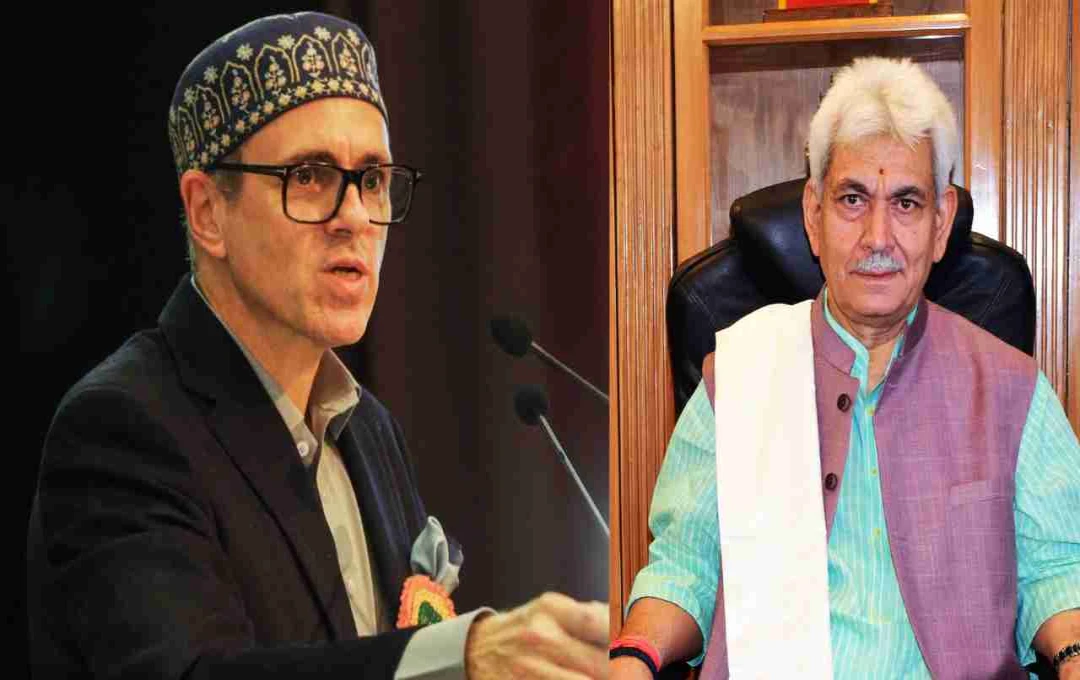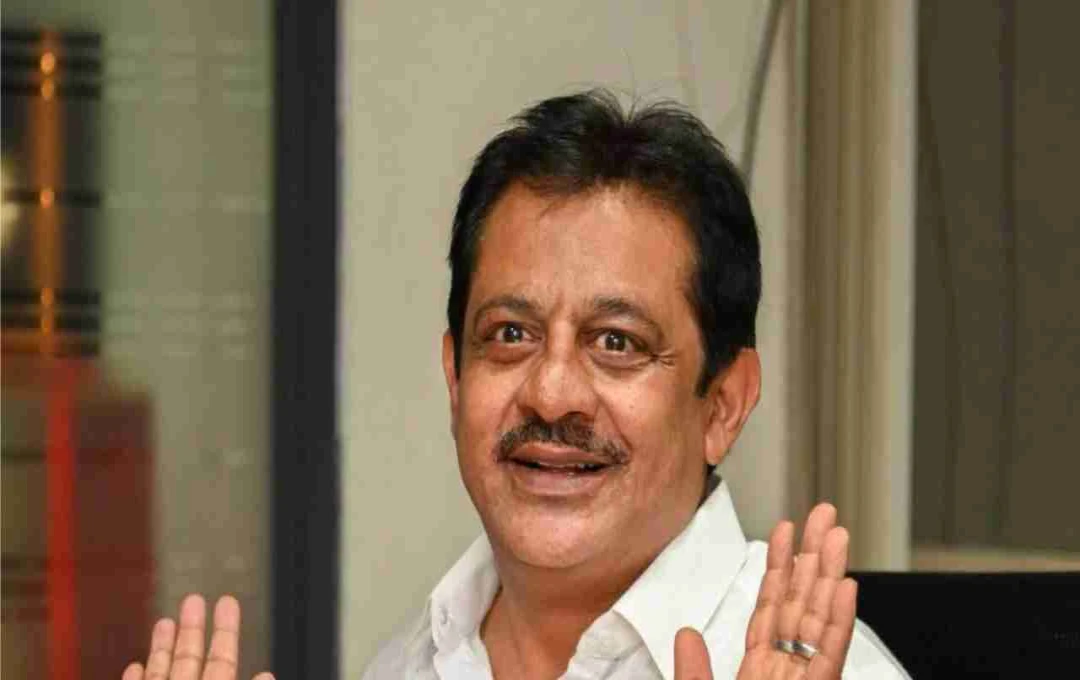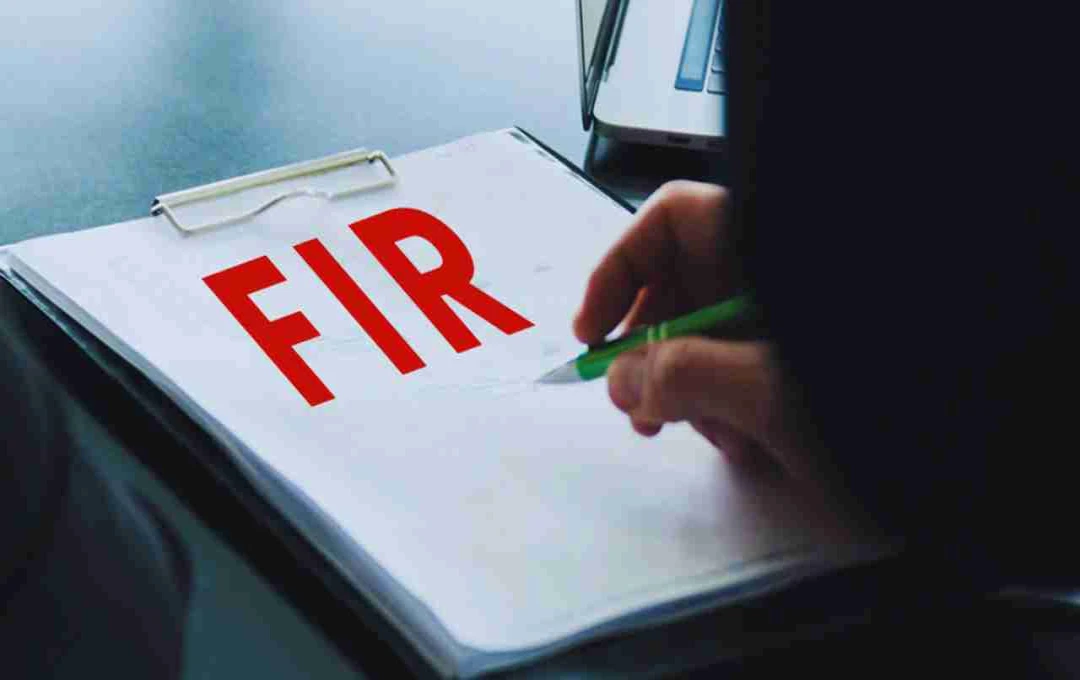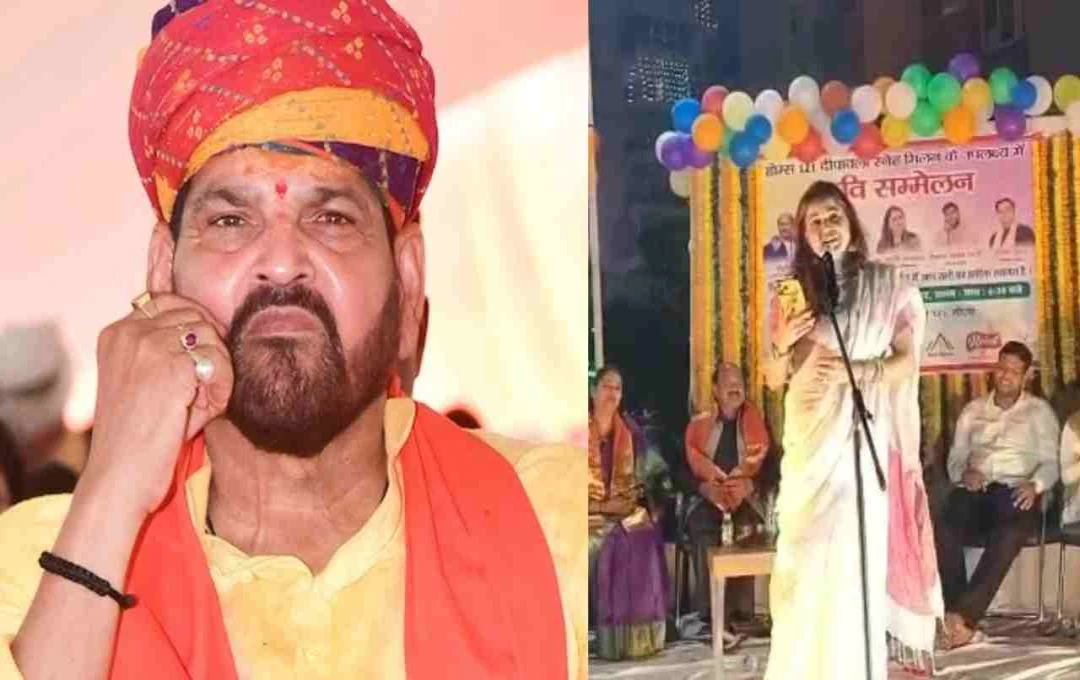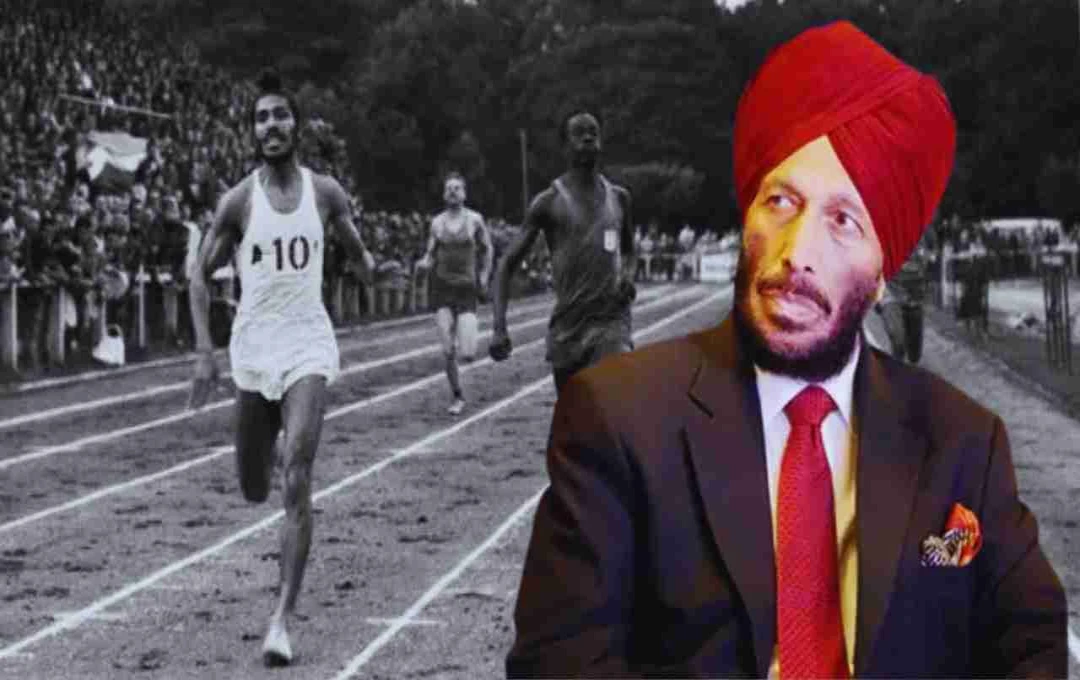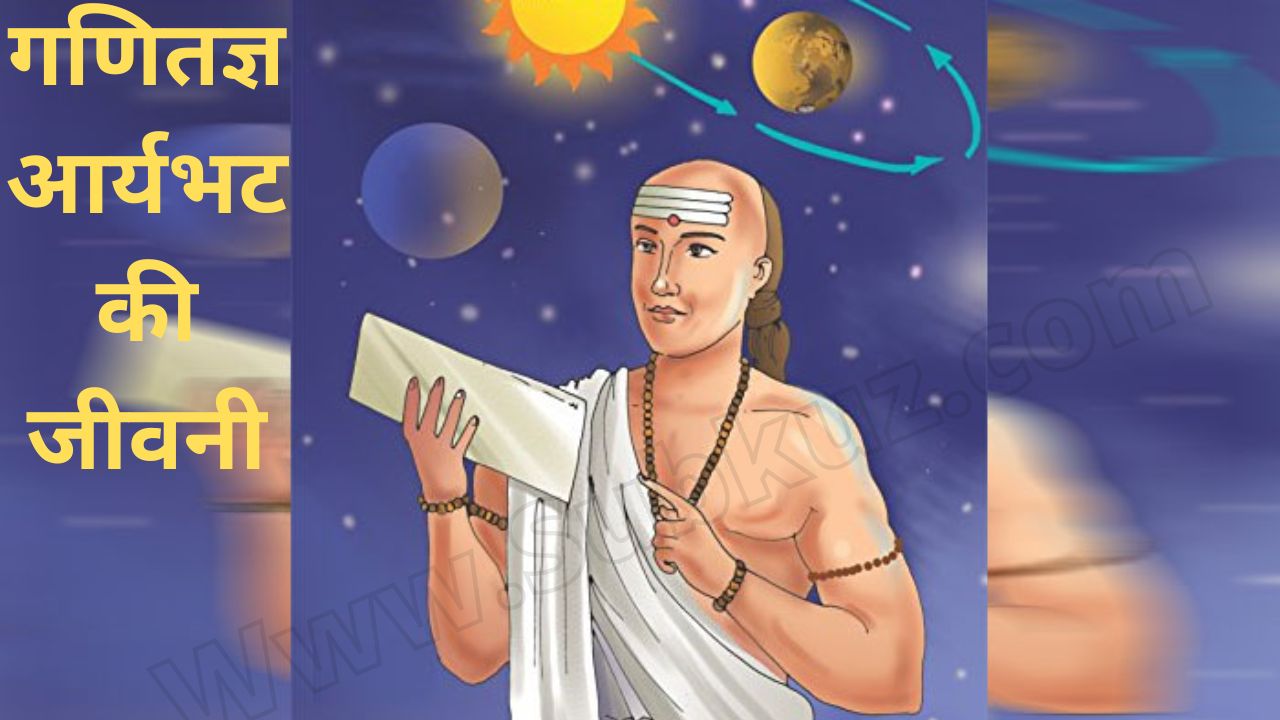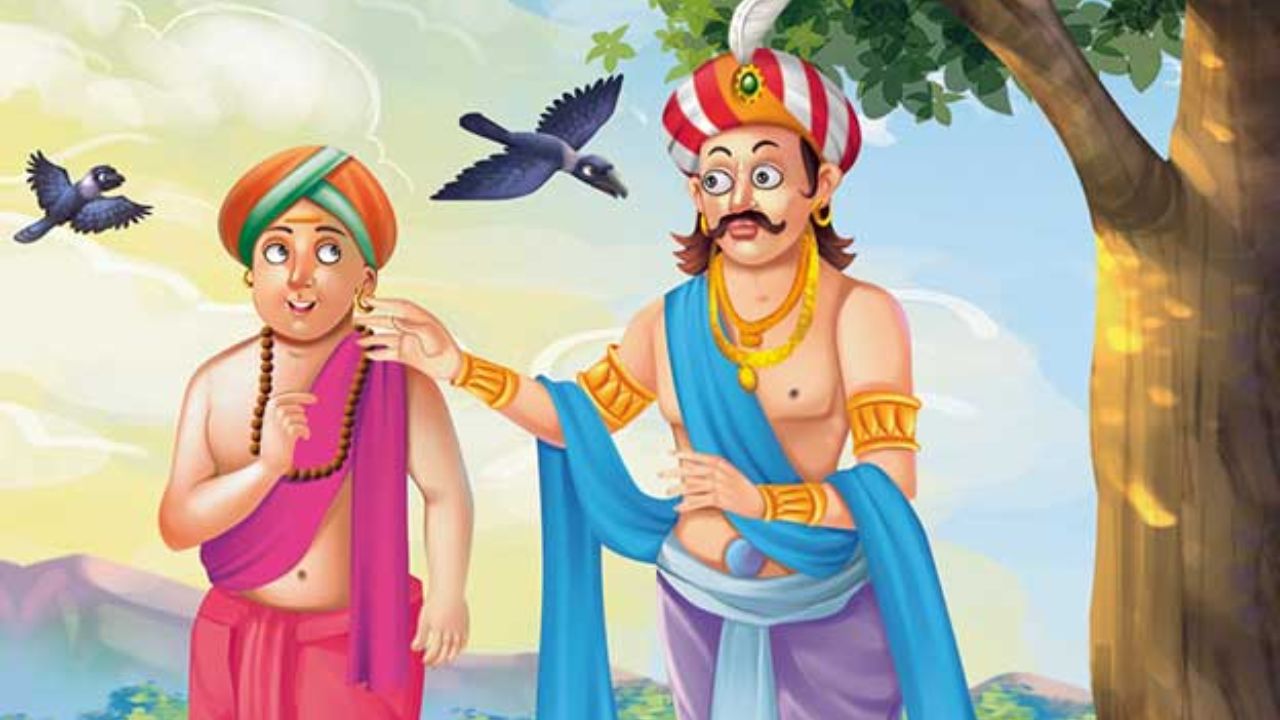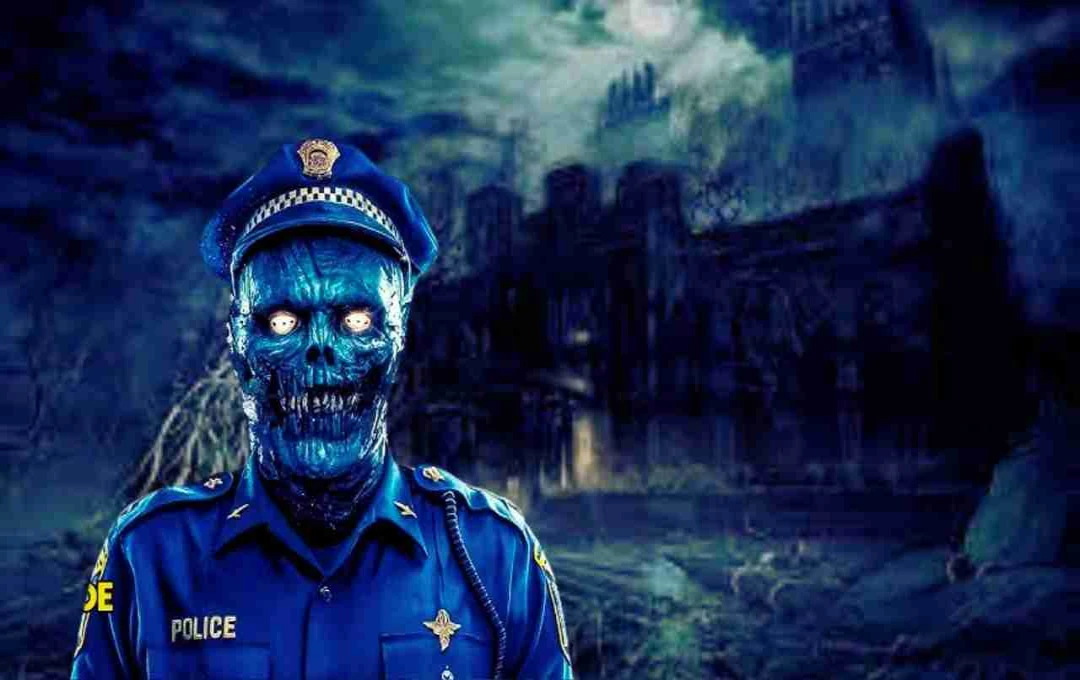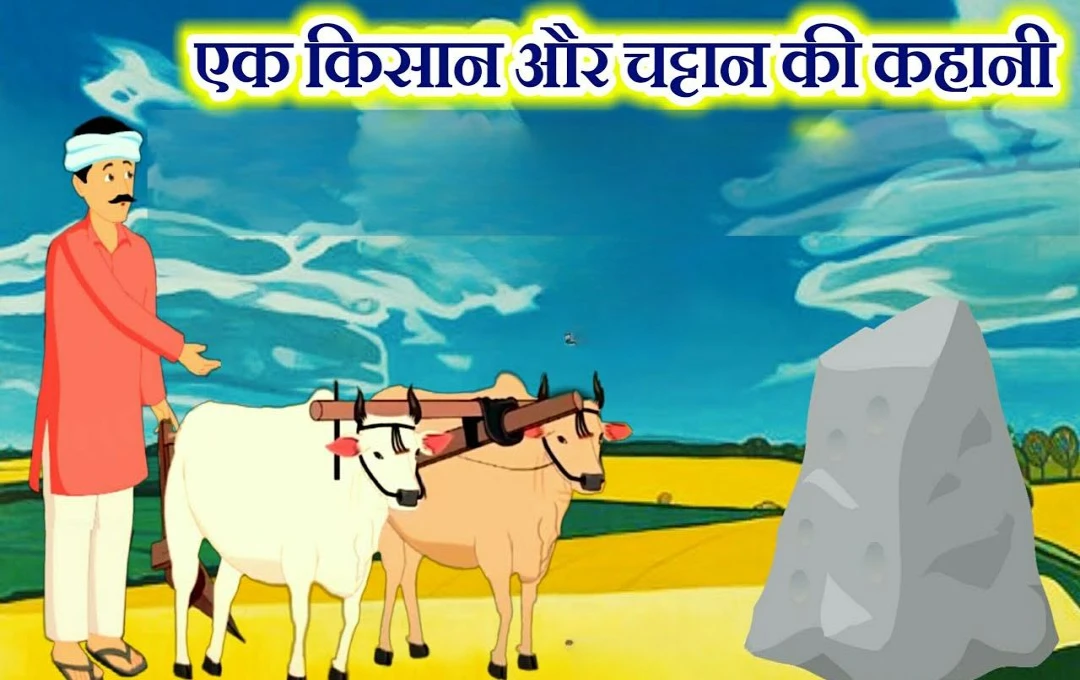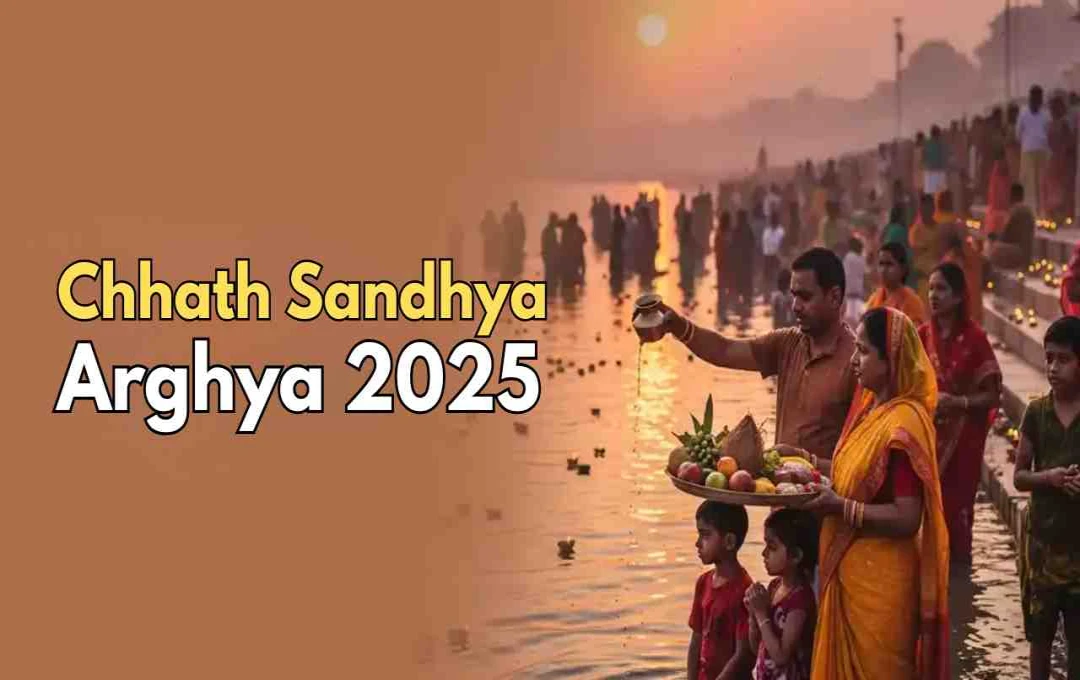In the history of Indian film music, there exists a name whose voice not only touched hearts but also immortalized the emotions of every era. That name is—Mohammed Rafi. He is also known as Rafi Sahab or Shahenshah-e-Tarannum (Emperor of Melody). Rafi Sahab's melodious and emotive voice gave many Bollywood stars a new identity on screen. Born on December 24, 1924, Rafi Sahab sang over 5000 songs in his lifetime and proved himself in every genre.
A Voice Born from Childhood
Rafi Sahab spent his childhood in Lahore, where his family had settled in search of employment. His family had no particular connection with music, but Rafi's soul gravitated towards it. It is said that at the age of seven, the singing voice of a fakir captivated him so much that he began to imitate it. This began at a barber's shop, and soon the melodiousness of his voice spread throughout the neighborhood.
His elder brother, Mohammed Hamid, recognized his talent and arranged for him to receive music lessons from Ustad Abdul Wahid Khan. One day, during a K.L. Saigal program at All India Radio Lahore, a power cut occurred. Seeing the restlessness of the crowd, the organizers gave Rafi a chance to sing. This was his first public performance—attended by music director Shyam Sunder, who was deeply impressed by Rafi's talent.
The Beginning of a Film Journey
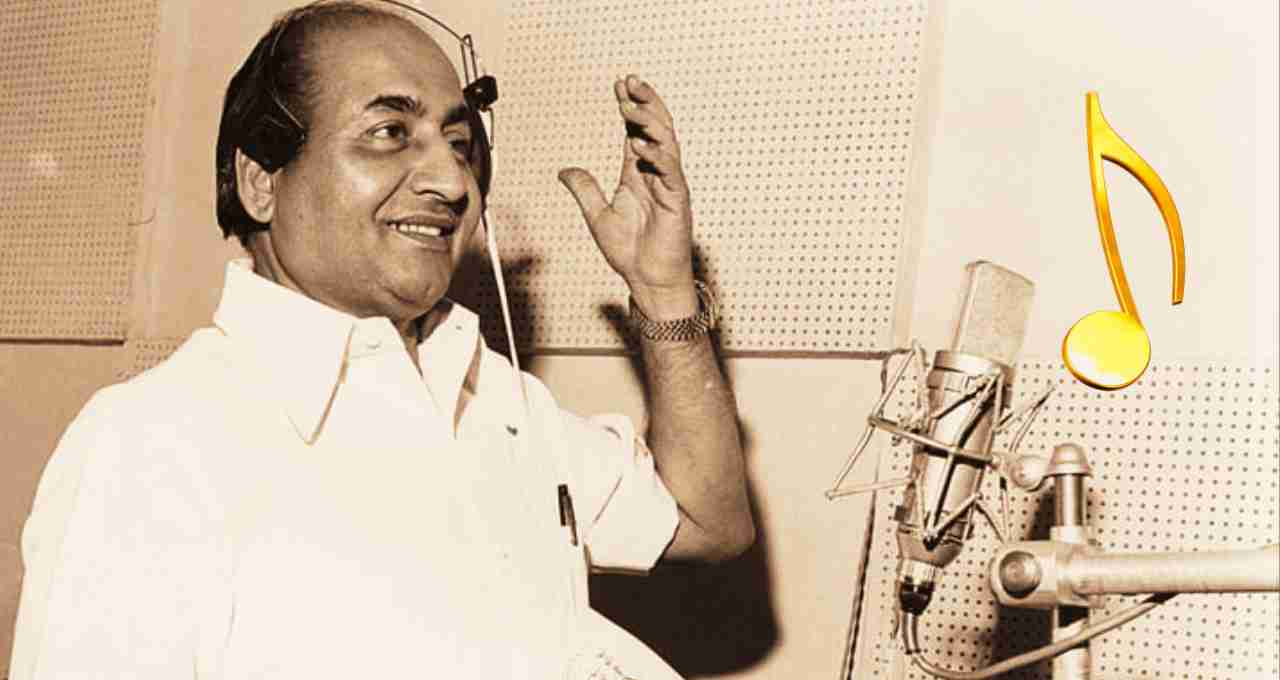
Rafi Sahab's first film song was for the Punjabi film 'Gul Baloch' in 1944. Afterward, he moved to Mumbai and in 1946 got the opportunity to sing in Naushad Sahab's film 'Pehle Aap'. However, he gained recognition with the song 'Tera Khelona Tota Balaka' from 'Anmol Ghadi' (1946).
Legendary music directors like Naushad, Shankar-Jaikishan, O.P. Nayyar, Sachin Dev Burman, Madan Mohan, Ravi, and Laxmikant-Pyarelal repeatedly chose Rafi's voice. A time came when Mohammed Rafi became the first choice for playback singing for almost every major actor.
Reaching the Heights of Music
The 1950s and 1960s were Rafi Sahab's golden period. Some of the countless songs he sang in films remain immortal, such as 'O Duniya Ke Rakhwale', 'Teri Pyari Pyari Surat Ko', 'Chahunga Main Tujhe Sanjh Savere', 'Baharon Phool Barsao', 'Likhe Jo Khat Tujhe', and 'Yeh Reshmi Zulfein'.
Shammi Kapoor was such a fan of Rafi's voice that he said, "The life that is seen in my acting is because of Rafi's voice." Whether it was 'Chahe Koi Mujhe Jungli Kahe' or 'Diwana Hua Badal', Rafi's voice breathed life into Shammi Kapoor's acting.
Filmfare and Padma Shri Awards
Rafi Sahab received many prestigious awards during his lifetime. He received his first Filmfare Award in 1960 for the title song of the film 'Chaudahvin Ka Chand'. He was subsequently awarded for songs like 'Teri Pyari Pyari Surat' (1961), 'Baharon Phool Barsao' (1966), 'Chahunga Main Tujhe' (1965), and 'Kya Hua Tera Wada' (1977). The Government of India honored him with the Padma Shri in 1965.
Rafi Sahab's Distinctive Quality
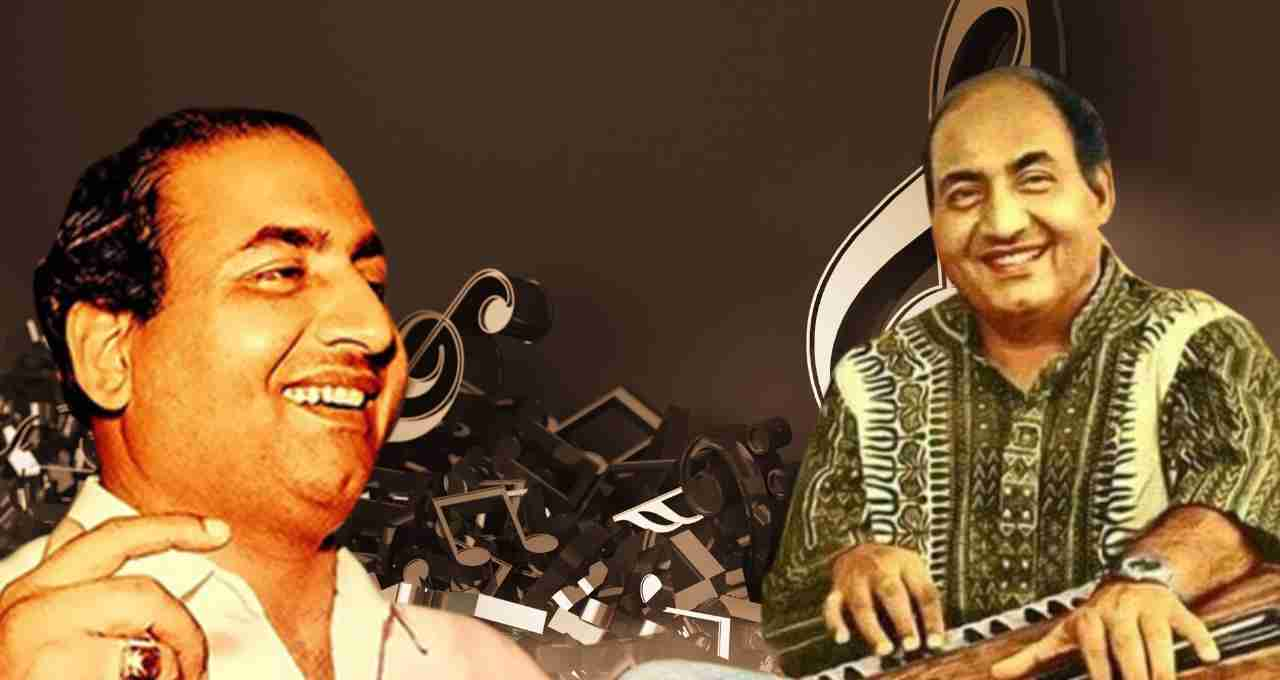
The special aspect of Rafi Sahab's voice was the innocence, romance, pain, and devotion hidden within it. His singing had perfection along with a spiritual depth. He could sing 'Madhuban Mein Radhika Nachhe Re' with as much ease as he could intensely render patriotic songs like 'Kar Chale Hum Fida'.
He wasn't just a singer, but an artist who brought scenes to life with his voice. This is why every actor, from Dilip Kumar, Dev Anand, Dharmendra, Rajendra Kumar to Amitabh Bachchan and Rishi Kapoor, considered his voice a complement to their acting.
The End of an Era, but an Immortal Voice
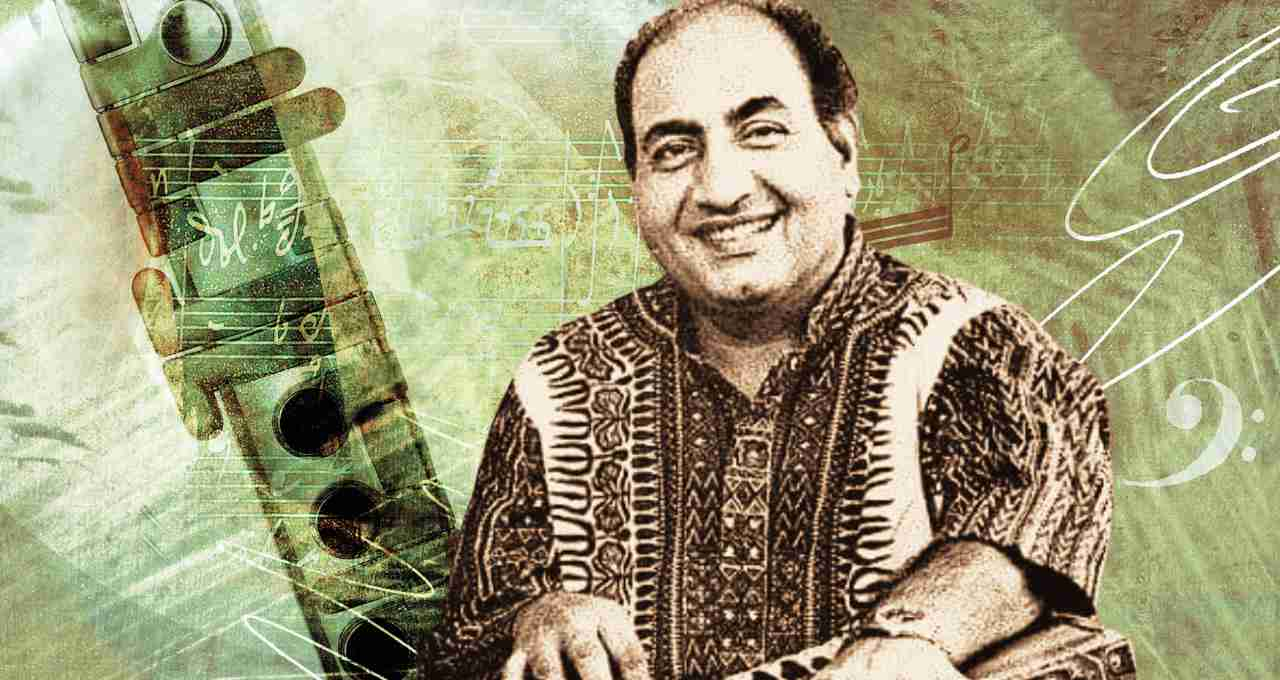
On July 31, 1980, Rafi Sahab bid farewell to this world. Thousands of people attended his last rites. A profound silence fell across the country; it was as if the very melody had ceased.
Although his physical presence is gone, his music remains the heartbeat of every heart. On his 93rd birthday, December 24, 2017, Google created a doodle as a tribute, designed by Mumbai-based artist Sajid Sheikh.
Rafi's Voice Lives On as Inspiration
Rafi Sahab's singing deeply influenced singers like Sonu Nigam, Mohammed Aziz, and Udit Narayan. Although they all carved their own distinct identities, they themselves acknowledge that there is no one like Rafi.
Even today, whenever a new singer wins hearts with their voice, there is always a trace of Rafi's shadow in them. His songs are still remixed in new films, played on the radio, and remain the lifeblood of old music lovers.
Mohammed Rafi was an artist whose voice brought every emotion to life. Though he may no longer be with us, his voice still resides in our hearts. Through his singing, he not only entertained but also enriched India's cultural heritage. He lives on in the heart of every music lover—as an immortal singer.
